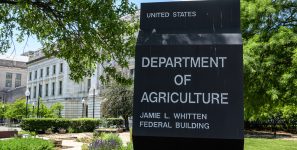Hong Kong Takes Top Spot in 2018 Sustainable Trade Index
Hong Kong displays the best engagement in sustainable trade, according to The 2018 Hinrich Foundation Sustainable Trade Index released today by The Economist Intelligence Unit (EIU).
The index, commissioned by The Hinrich Foundation, is in its second edition, after first being published in 2016, measures the capacity of 20 economies—nineteen in Asia and the United States—to participate in the international trading system in a sustainable manner. Sustainability supports the long-term domestic and global goals of economic growth, environmental protection, and strengthened social capital.
Hong Kong came first in the environmental pillar and second in the economic pillar.
Many of Asia’s wealthier economies, including South Korea, Singapore, Japan, and Taiwan, saw their scores decline from 2016. Japan performs poorly on indicators ranging from exchange-rate volatility and export market concentration to inequality, and transfer emissions. Singapore’s score was hurt by a steep fall in the environmental pillar, while Taiwan’s score is lower in both the economic and environmental pillars.
On a more positive note, several emerging economies in the index show that it is not only wealthier nations that are able and willing to engage in sustainable trade. Sri Lanka leads the group with an overall seventh. Vietnam performs relatively well in the social pillar, coming in eighth, higher than economies such as Malaysia and Thailand.
Although the index results are not everywhere encouraging, interviews with executives revealed that sustainability is an increasingly important determinant of FDI and vendor selection in choosing supply-chain partners. Today, rather than a corporate social responsibility initiative, sustainability is a source of competitive advantage and is factoring into firms’ investment decision more heavily than ever before. Companies are also improving the sustainability of their supply chains by restructuring and broadening relationships with competitors and vendors.
“Governments are still the driving force behind sustainable trade and the results of the 2018 index clearly show that many in the Asia-Pacific need to be doing more,” said Chris Clague, editor of the paper. “But it is encouraging to see that that the private sector has come to see sustainability—and not just environmental sustainability—as a vital component of corporate strategy.”





Leave a Reply